After Euro 2016 Title, Portugal, Cristiano Ronaldo Eye World Cup Success

Two years on from Portugal's Euro 2016 title, it's still difficult to know what to think of it.
On the one hand, Portugal won the tournament, and that's all that matters. It beat the host nation, France, in the final. Cristiano Ronaldo finally got his hands on a major international trophy–even if he was injured in the final–and nobody in Portugal cares how that trophy was won.
But Portugal was more than a little fortunate to lift the Henri Delaunay trophy. It won only one match in normal time, drew all three of its group matches despite a very favorable draw, and didn't face one of the main competitors until the final. And if Ronaldo thought that winning the trophy would end the Lionel Messi comparisons, he was sorely mistaken.
Still, it was an impressive achievement after an ignominious early exit from the 2014 World Cup. Since reaching the semifinals in 2006, Portugal has only beaten North Korea and Ghana at the World Cup, and it still seems to rely very heavily on one tactic: give it to Ronaldo and pray. Not a bad tactic, to be fair.
Ronaldo is 33 now, and the World Cup is the only major honor that still eludes him. After Messi finally shone at a major finals in 2014, the pressure is on his nemesis to do the same this summer. The clock is ticking. Here's what you need to know about Portugal at the World Cup:
How They Qualified
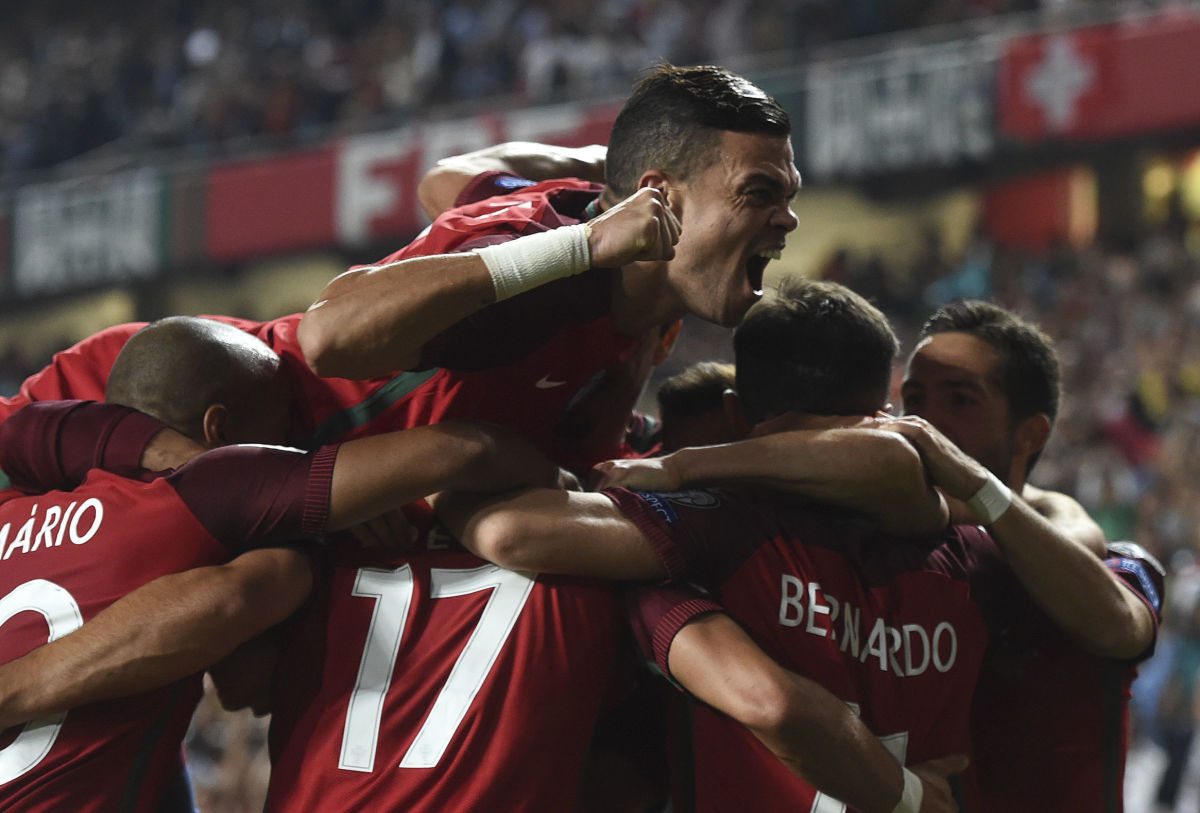
For most of its qualifying campaign, it looked like Portugal would need a playoff to decide its World Cup fate for a third consecutive tournament.
After losing the opening game to Switzerland, Portugal won its next eight matches–but so did the Swiss. It all came down to the reverse fixture between the two in Lisbon, where Portugal won 2-0 to advance to the World Cup on goal difference.
It would have been harsh if Portugal hadn't qualified. It scored 32 goals in its group, a number eclipsed only by Germany, Spain and Belgium. Ronaldo scored 15 of those goals–only Poland's Robert Lewandowski netted more in European qualifying.
Portugal also conceded just four goals; only Spain and England let in fewer. The group might not have been the hardest, but it shows that Fernando Santos's team has quality at both ends of the field.
Group Stage Games
Despite being seeded for the draw, Portugal ended up in the same group as Iberian neighbor Spain, and its campaign begins against Julen Lopetegui's side in Sochi on June 15. Spain's last two World Cups have begun with a defeat, so Portugal will hope to capitalize on another slow start.
The second game takes Portugal to Moscow for what many people think will be the decisive game in the group against Morocco. Defeat to Spain in the opening match coupled with a Morocco win over Iran would leave Portugal needing a win to keep its fate in its own hands.
It's likely to come down to the final game against Iran in Saransk on June 25. The familiar face of Carlos Queiroz awaits in the Iran dugout, but even his in-depth knowledge of Portugal is unlikely to save Iran. Portugal should win that one, and that would be enough.
Possible Route to the Final
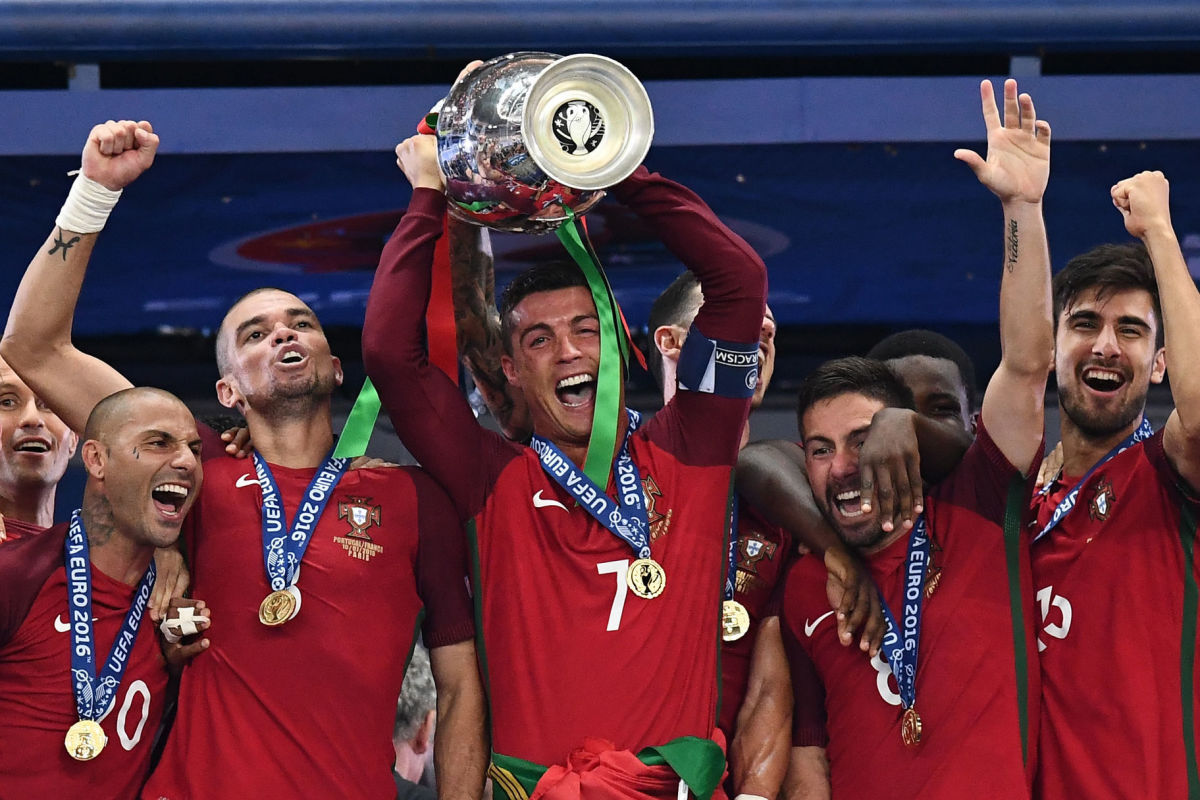
Group B is a good group from which to qualify, as it guarantees a last 16 clash with a side from the relatively weak Group A.
The most likely outcome is that Portugal will finish second in the group to set up a second-round meeting, most likely, with Uruguay. This would be a very evenly-matched affair–pitting Ronaldo against the likes of Luis Suarez and Edinson Cavani and Atletico Madrid center back Diego Godin–but Portugal showed in 2016 that it knows how to navigate a tight knockout match.
Win there, and you're looking at a potential Euro 2016 rematch against France in the quarterfinals. Two years on, a hardened French side is unlikely to make the same mistakes, and that could spell the end of the road for Portugal.
If it does get through to the semis, Brazil is the most likely opponent, followed, potentially, by Argentina, Spain or Germany in the final. Anyone for a Ronaldo vs Messi final showdown?
Squad
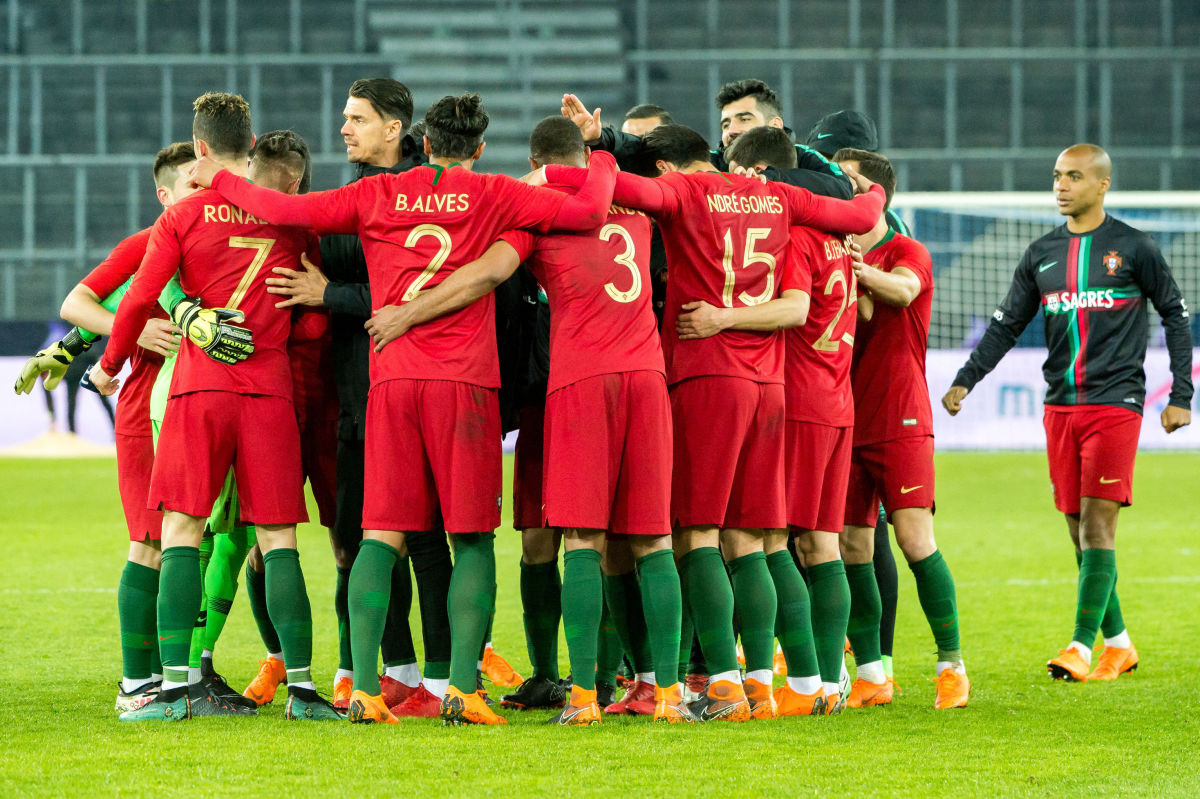
Goalkeepers: Anthony Lopes (Lyon), Beto (Goztepe), Rui Patrício (Sporting)
Defenders: Bruno Alves (Rangers), Cédric Soares (Southampton), José Fonte (Dalian Yifang), Mário Rui (Nápoles), Pepe (Besiktas), Raphael Guerreiro (Dortmund), Ricardo Pereira (FC Porto), Rúben Dias (Benfica)
Midfielders: Adrien Silva (Leicester), Bruno Fernandes (Sporting), João Mário (West Ham), João Moutinho (Mónaco), Manuel Fernandes (Lokomotiv), William Carvalho (Sporting)
Forwards: André Silva (Milan), Bernardo Silva (Manchester City), Cristiano Ronaldo (Real Madrid), Gelson Martins (Sporting), Gonçalo Guedes (Valência), Ricardo Quaresma (Besiktas)
Predicted Lineup
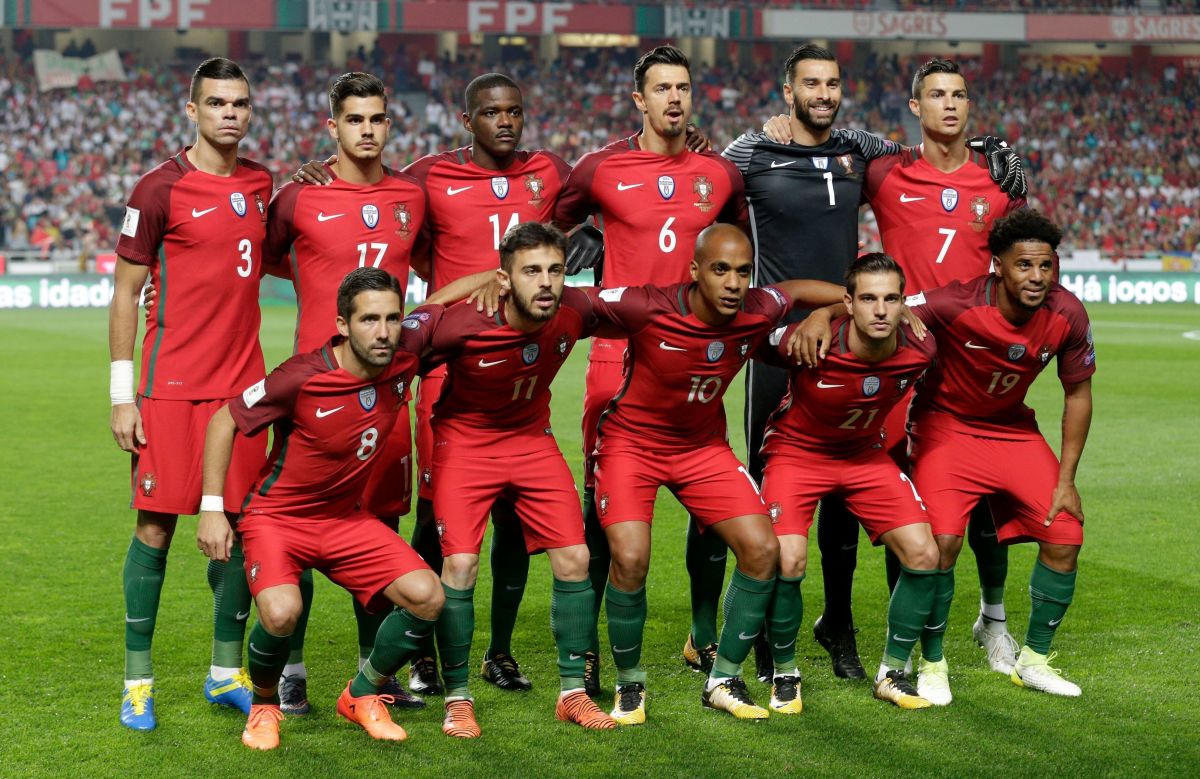
(4-4-2) Rui Patricio; Raphael Guerreiro, Pepe, Jose Fonte, Cedric Soares; Joao Mario, William Carvalho, Joao Moutinho, Bernardo Silva; Cristiano Ronaldo, Andre Silva
Outlook
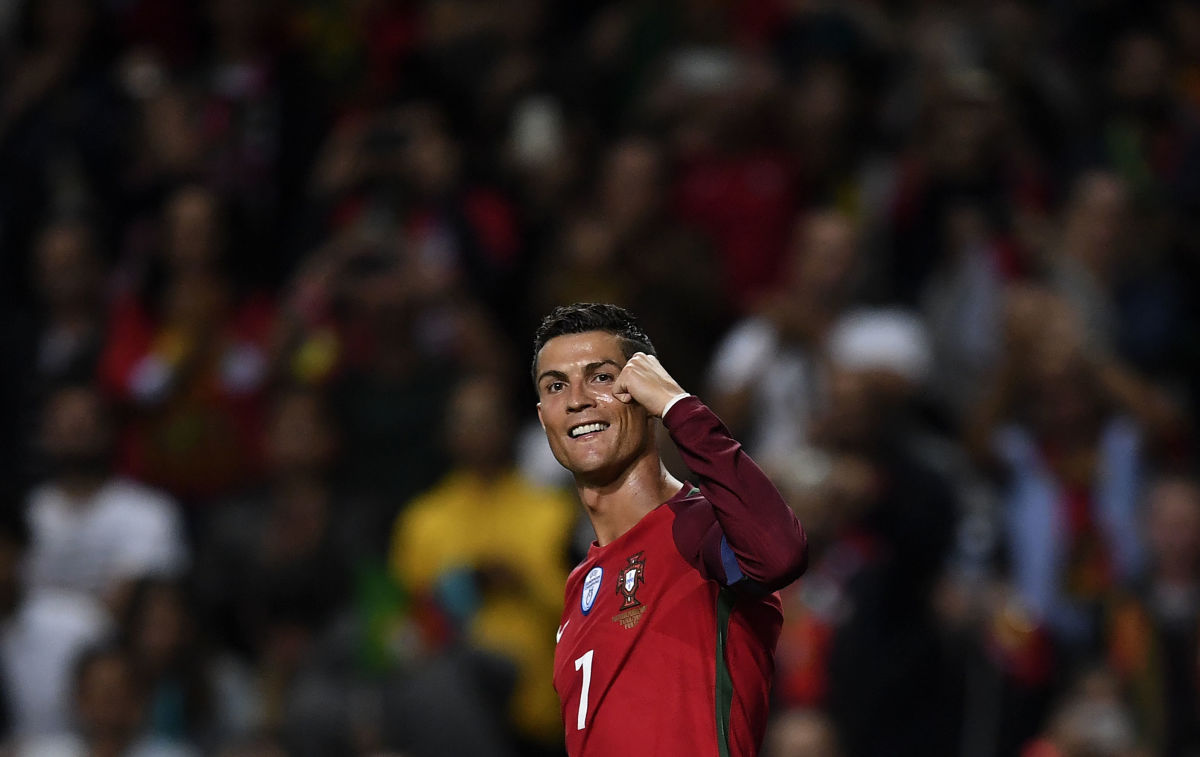
One man teams don't win major tournaments. Ronaldo went off after 25 minutes of the Euro 2016 final and Portugal went on to win, so clearly it can survive without him.
That said, a lot will depend on Portugal's talisman. If he's on it from the word go, then Portugal could even top the group, and a last-16 meeting with the likes of Egypt or Russia would be much more winnable than one against Uruguay. And once you reach the quarterfinals, especially with Ronaldo in form, who knows?
On the other hand, if Ronaldo goes missing for the first two games like he did at the Euros and the last World Cup, Portugal could already be out by the time he comes to the party. Because if he doesn't get the goals, who will? Probable strike partner Andre Silva only scored twice in 24 Serie A appearances for Milan this season.
The most likely outcome is that Portugal will go out in the last 16 or the quarterfinals. If Uruguay doesn't eliminate them, then France most likely will. Despite winning Euro 2016, it remains outside that elite group of nations, and nobody is really expecting them to challenge for the trophy.
Mind you, that's been said before.
